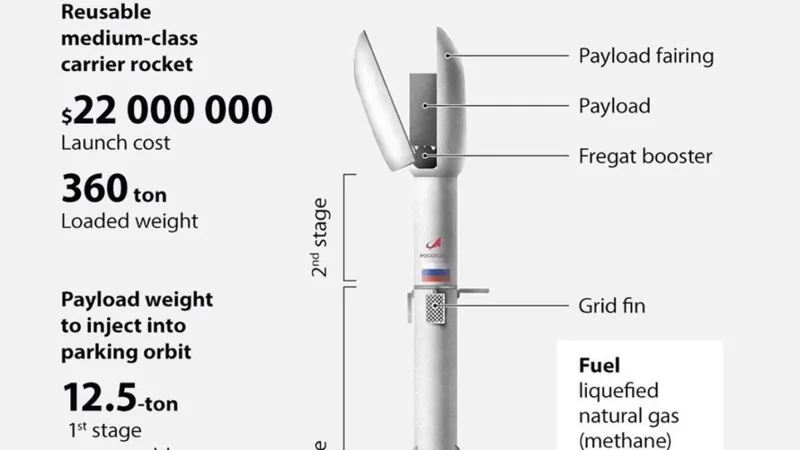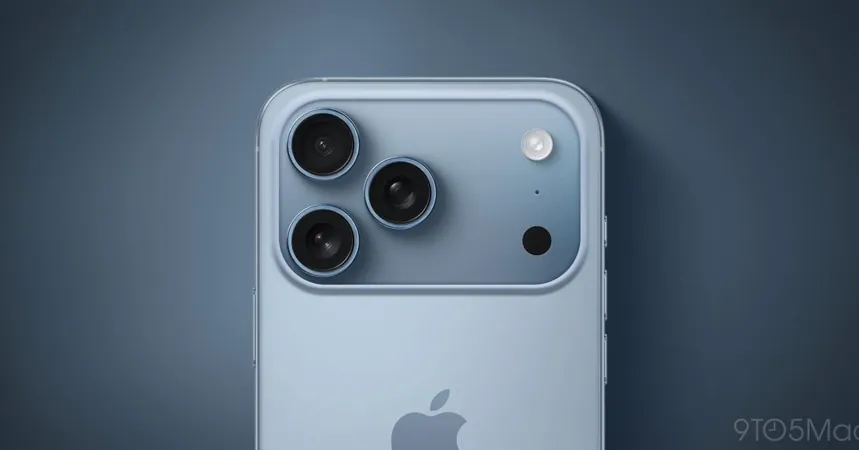
Russia's Bold Leap: Unveiling the Grasshopper Rocket Project—Can It Compete with SpaceX?
2024-11-11
Author: Jessica Wong
In a surprising twist for the global launch industry, Russia has announced its ambitions for a reusable rocket project, following the lead of SpaceX and other pioneers in space technology. Historically skeptical about the economic viability of such systems, Russian officials, including former Roscosmos CEO Igor Komarov, once dismissed reusable first stages as non-essential, famously asserting that the feasibility was "not obvious." Throughout the 2010s, many nations and corporations opted for expendable rockets, leaving reusable technology as the realm of SpaceX and other innovators.
However, the landscape has changed dramatically since SpaceX made history in 2017 by successfully re-flying its Falcon 9 rocket. This milestone catalyzed a broader reassessment within the Russian space agency, which had previously failed to recognize the importance of reusable technology. Komarov acknowledged SpaceX's achievement back then, hinting at the potential for Russian development of reusable rocket components.
Flash forward to today, and Roscosmos is finally taking significant steps towards its reusable rocket aspirations with the introduction of the “Grasshopper” project. Named similarly to SpaceX’s pioneering vehicle, the Grasshopper aims to test the vertical landing abilities of Russia’s Amur rocket's first stage. Igor Pshenichnikov, Roscosmos's deputy director for future programs, revealed that preparations for this test vehicle are set to begin next year, a development long awaited by the industry.
Yet, this announcement underscores how far Russia has lagged behind. SpaceX began testing its own Grasshopper vehicle in 2012, using repurposed components, and advanced rapidly to successfully landing its Falcon 9 boosters by 2015. In stark contrast, Russia's trajectory indicates that the initial launch of the Amur rocket has been delayed from 2026 to a projected 2030.
With the global space race intensifying, Russia is not the only player catching up to SpaceX. The European Space Agency has initiated its own “hopper” program with the Themis project, though low-altitude tests are not expected until 2025. Meanwhile, various Chinese firms are poised to make advancements in reusable rocket technology, potentially eclipsing Russia's efforts.
Blue Origin, led by Jeff Bezos, has already made substantial strides with its New Shepard rocket, successfully completing multiple landings. The company is now preparing for the launch of its New Glenn rocket, aiming to demonstrate first-stage recovery on a drone ship shortly.
As other nations forge ahead with reusable rocket technology, the questions loom: Will Russia's Grasshopper project succeed where others have stumbled? Can it reclaim its historical place in the global space industry? The countdown has begun, and all eyes are on Russia as it attempts to leap into a future where reusable rockets could redefine space travel and exploration. Will they rise to the challenge or become a relic of the past?



 Brasil (PT)
Brasil (PT)
 Canada (EN)
Canada (EN)
 Chile (ES)
Chile (ES)
 Česko (CS)
Česko (CS)
 대한민국 (KO)
대한민국 (KO)
 España (ES)
España (ES)
 France (FR)
France (FR)
 Hong Kong (EN)
Hong Kong (EN)
 Italia (IT)
Italia (IT)
 日本 (JA)
日本 (JA)
 Magyarország (HU)
Magyarország (HU)
 Norge (NO)
Norge (NO)
 Polska (PL)
Polska (PL)
 Schweiz (DE)
Schweiz (DE)
 Singapore (EN)
Singapore (EN)
 Sverige (SV)
Sverige (SV)
 Suomi (FI)
Suomi (FI)
 Türkiye (TR)
Türkiye (TR)
 الإمارات العربية المتحدة (AR)
الإمارات العربية المتحدة (AR)